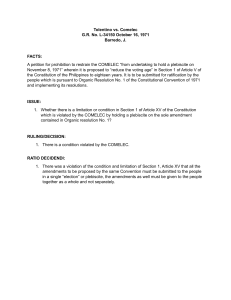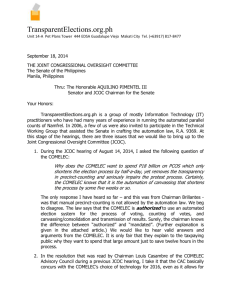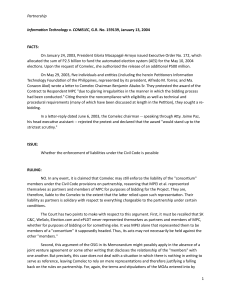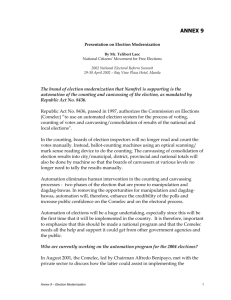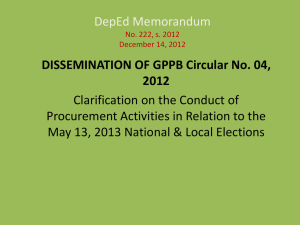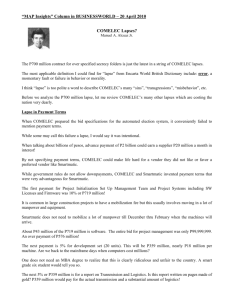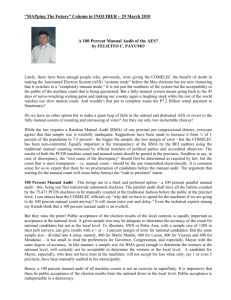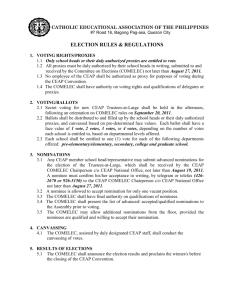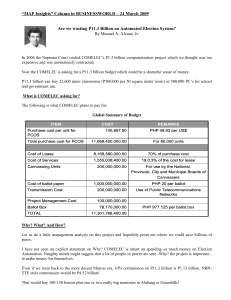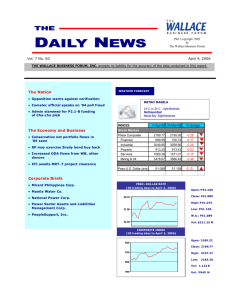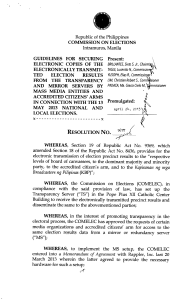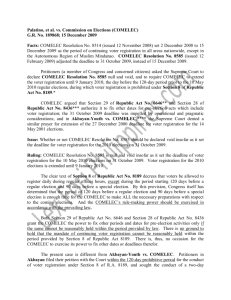Ask why, before what and how
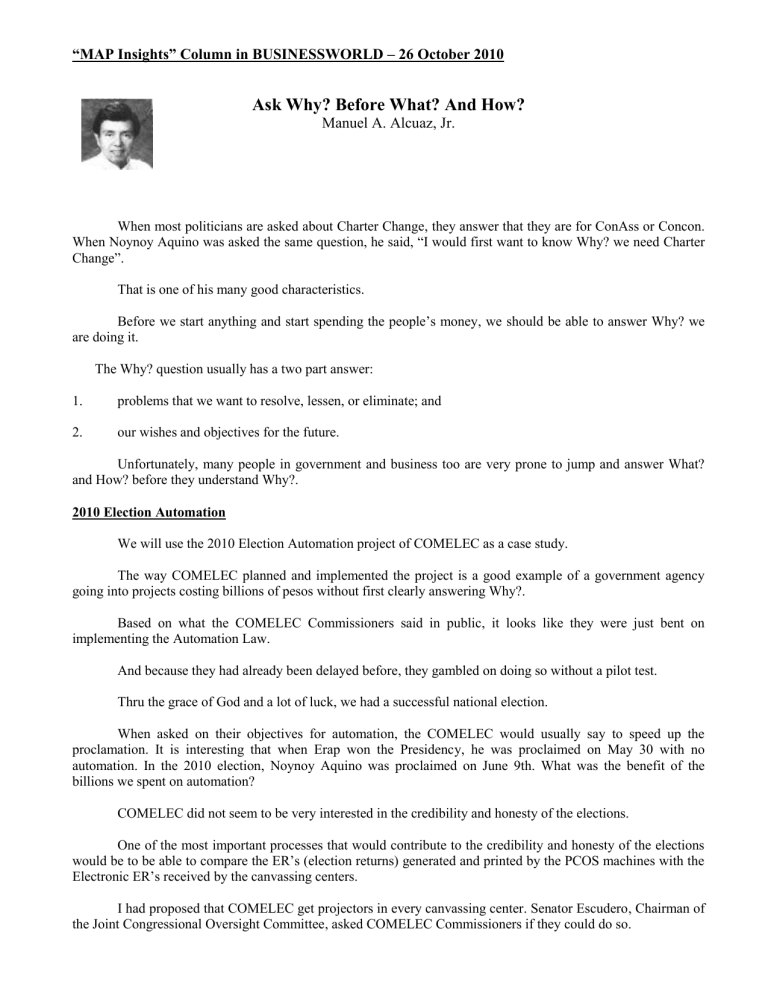
“MAP Insights” Column in BUSINESSWORLD – 26 October 2010
Ask Why? Before What? And How?
Manuel A. Alcuaz, Jr.
When most politicians are asked about Charter Change, they answer that they are for ConAss or Concon.
When Noynoy Aquino was asked the same question, he said, “I would first want to know Why? we need Charter
Change”.
That is one of his many good characteristics.
Before we start anything and start spending the people’s money, we should be able to answer Why? we are doing it.
The Why? question usually has a two part answer:
1.
problems that we want to resolve, lessen, or eliminate; and
2.
our wishes and objectives for the future.
Unfortunately, many people in government and business too are very prone to jump and answer What? and How? before they understand Why?.
2010 Election Automation
We will use the 2010 Election Automation project of COMELEC as a case study.
The way COMELEC planned and implemented the project is a good example of a government agency going into projects costing billions of pesos without first clearly answering Why?.
Based on what the COMELEC Commissioners said in public, it looks like they were just bent on implementing the Automation Law.
And because they had already been delayed before, they gambled on doing so without a pilot test.
Thru the grace of God and a lot of luck, we had a successful national election.
When asked on their objectives for automation, the COMELEC would usually say to speed up the proclamation. It is interesting that when Erap won the Presidency, he was proclaimed on May 30 with no automation. In the 2010 election, Noynoy Aquino was proclaimed on June 9th. What was the benefit of the billions we spent on automation?
COMELEC did not seem to be very interested in the credibility and honesty of the elections.
One of the most important processes that would contribute to the credibility and honesty of the elections would be to be able to compare the ER’s (election returns) generated and printed by the PCOS machines with the
Electronic ER’s received by the canvassing centers.
I had proposed that COMELEC get projectors in every canvassing center. Senator Escudero, Chairman of the Joint Congressional Oversight Committee, asked COMELEC Commissioners if they could do so.
They said that they had no budget for projectors that would have costed about P50 million.
It was only when the P700 million secrecy folder scam was discovered that COMELEC was forced to buy projectors for all canvassing centers.
Incomplete What? and How?
The COMELEC did not do a thorough analysis of What? alternatives were available for cost-effective, honest and credible elections.
A little analysis would indicate that there were at least four major alternatives:
1.
Manual counting with computerized transmission and canvassing (like OES proposed by Gus Lagman)
2.
3.
CCOS (Centralized Canvassing Optical Scan) and computerized transmission and canvassing as in 2007
ARMM elections.
PCOS (Precinct Count Optical Scan) and computerized transmission and canvassing.
4.
DRE (Direct Recording Entry) and computerized transmission and canvassing.
The COMELEC did not consider all alternatives.
They just compared the cost of PCOS and DRE. Since DRE, with touch screen terminals would require about a million DRE’s, the budget would be too high, more than P30 billion!
So they settled for PCOS and congratulated themselves for saving money.
They never analyzed the other two alternatives which would have been more secure and cost much loss.
We are lucky that Noynoy Aquino had massive popularity, which made automated election fraud difficult to execute without triggering a citizens’ revolt.
There are many other multi-billion government projects where a careful analysis of Why? the project is needed has not been done.
Instead, the proponents haphazardly jump into What? and How?.
And also fail to do a careful analysis of all alternatives.
Perhaps, the How? they are interested in is “How much” is there for us?
(The article reflects the personal opinion of the author and does not reflect the official stand of the Management
Association of the Philippines. The author is President of Systems Sciences Consult, Inc. and member of the MAP
National Issues Committee. Feedback at map@globelines.com.ph. For previous articles, please visit
<map.org.ph>.)
G:\map insights\2010\malcuaz - 26October 2010 - ask why- before what and how.doc::mel
